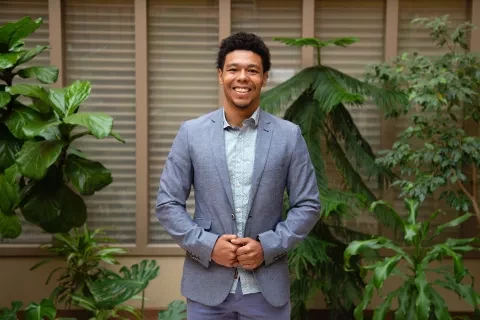April 27, 2021
Q: What should I expect when my loved one gets back from treatment?
A: As loved ones, we’re desperate for the person in our life with addiction to get better. We’re looking for some resolution, a turning point, a sign that things will go back to normal. Often, someone finally entering treatment may be the change we’ve been looking for. We think, “This is it.”
Unfortunately, as with almost every aspect of the disease of addiction, it’s usually not that simple.
Everyone is different, but many people leaving treatment still struggle with cravings, mood swings and sometimes relapse, which we call a recurrence of symptoms. It can be a confusing time for loved ones who’ve been waiting and waiting for a positive, lasting change.
Many loved ones ask me why someone would still want to use after getting sober. It doesn’t make sense to someone who’s never had an addiction, particularly if you’ve witnessed all the negative consequences they’ve experienced as a result of their use.
It’s very helpful for loved ones to have an understanding of what addiction does to the brain at this stage of recovery. Drugs, including alcohol, alter the brain. Years of regular drug use can have long-lasting impacts and will require time for the brain to slowly heal itself. Their body has developed a dependence; cravings won’t go away after a brief inpatient treatment stay.
Treatment is an important first step for many struggling with addiction, but it’s often one of many. Like any other chronic disease, addiction requires lifelong management. Outpatient treatment, peer coaches, support groups, therapists – all may be needed to help someone get through the early stages of addiction recovery. Try to be supportive of whatever aftercare your loved one chooses. You may have ideas, which is great, but it’s important for you to respect their decision when it comes to their long-term wellness plan. At Face It TOGETHER, we’ve heard several members with addiction express gratitude for the people in their lives who were open to multiple recovery pathways.
Another helpful way to think about someone’s desire to use is all about the power of habit. Someone struggling with addiction may have only one coping technique they’ve relied on for years: using or drinking. It’s not an effective coping technique, but it is something. And if someone has to relearn other coping skills to overcome challenges, deal with frustration or disappointment and let go of the shame of their addiction, it can feel very, very overwhelming. Though temporary, drug use may provide some much-needed relief.
If you’re disappointed or frustrated after your loved one returns from treatment, know that your feelings are completely normal. A peer coach who knows what you’re going through and can help you set realistic expectations can be a valuable resource during this time.
For more reading around this topic, we recommend the book “The Complete Family Guide to Addiction” by Thomas Harrison and Hilary Connery. The book’s last chapter, “What to Expect in Recovery” covers this topic at length. One of our team members also shared her personal experience around treatment graduations in 2015.

